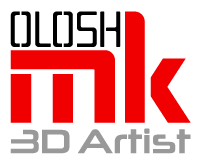Decentralized Finance (DeFi) is a rapidly growing sector within the cryptocurrency space that offers a range of financial services without the need for traditional intermediaries. DeFi applications have garnered significant attention in recent years due to their potential to provide greater financial inclusion, transparency, and efficiency. One of the key challenges facing the DeFi ecosystem is interoperability, the ability for different blockchain networks and DeFi protocols to seamlessly communicate and interact with each other. In this article, we will explore the importance of interoperability in DeFi and how it can enhance investment opportunities for users.
Interoperability is essential for the growth and adoption of DeFi as it allows users to access a wide range of assets, liquidity, and services across multiple blockchain networks and protocols. Currently, the DeFi ecosystem is fragmented, with different projects operating on separate blockchains and using different standards and protocols. This fragmentation limits the ability of users to move assets and data between different platforms and inhibits the growth of the DeFi ecosystem as a whole.
By enabling interoperability, DeFi platforms can create a more seamless user experience and open up a wealth of investment opportunities for users. For example, interoperability allows users to easily swap assets between different protocols and access a wider range of investment strategies and opportunities. Users can also leverage their existing assets as collateral across multiple platforms, increasing their investment options and potential returns.
In addition to enhancing investment opportunities, interoperability can also improve the overall security and resilience of the DeFi ecosystem. By Stock Wave AI allowing different protocols to communicate and share data, interoperability can help identify and mitigate security vulnerabilities more effectively. Interoperability can also enable the development of cross-chain DeFi solutions that are more resistant to network failures and hacks.
Several projects are already working on enhancing interoperability within the DeFi ecosystem. One such project is Polkadot, a multi-chain platform that allows different blockchains to connect and interact with each other. Polkadot’s parachain architecture enables seamless interoperability between different DeFi protocols, allowing users to access a wide range of assets and services across multiple chains.
Another project that is focused on interoperability is Cosmos, a decentralized network of independent blockchains that can communicate with each other through a technology called Inter-Blockchain Communication (IBC). Cosmos enables DeFi platforms to exchange assets and data across different chains, creating a more seamless and interconnected ecosystem.
As DeFi continues to grow and evolve, the importance of interoperability will only become more pronounced. By enhancing interoperability, DeFi platforms can unlock new opportunities for innovation and growth, while also improving the overall user experience and security of the ecosystem. As users seek to diversify their investments and access a wider range of financial services, interoperability will play a crucial role in shaping the future of DeFi.
In conclusion, interoperability is a key enabler of investment opportunities within the DeFi ecosystem. By allowing different blockchain networks and protocols to communicate and interact with each other, interoperability can enhance the user experience, increase investment options, and improve the overall security and resilience of DeFi platforms. As the DeFi space continues to grow and mature, interoperability will be a critical factor in driving innovation and adoption within the ecosystem.


Comments are closed.